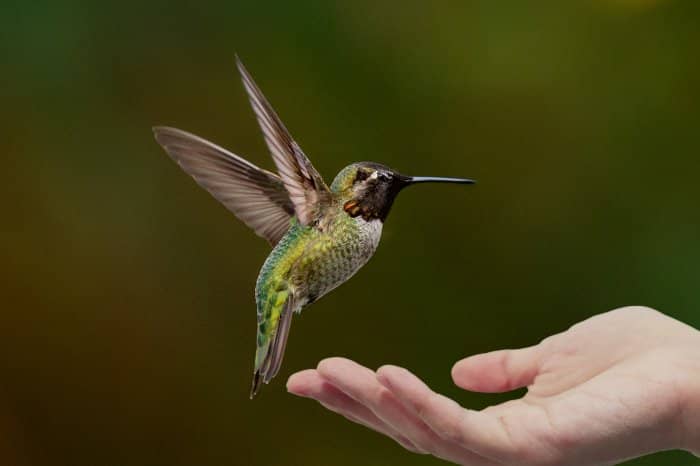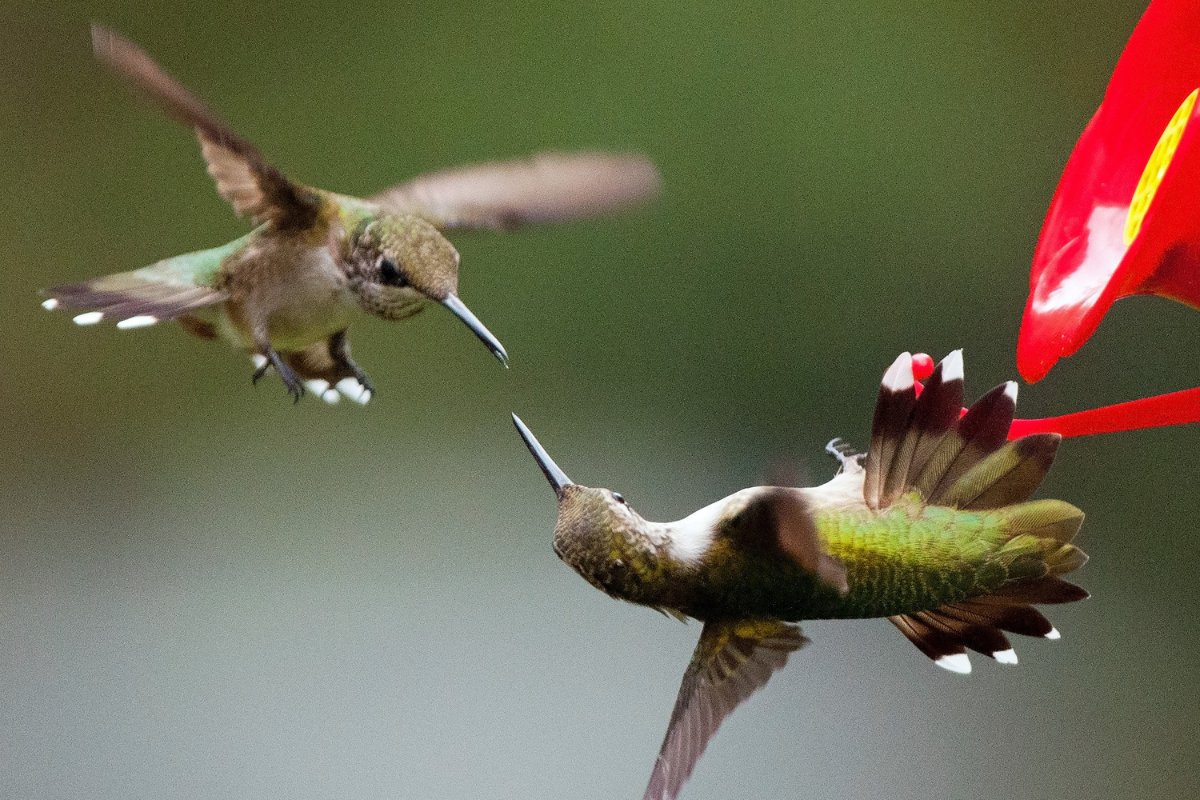Do hummingbirds bite? Take a look at this article, the real truth is more than shocking!
We can only try to imagine the rush of emotions you felt when you first saw a tiny hummer live. We have to admit that even after the hundredth time, the feelings remained the same. It’s really hard to put into words this, above all, amazing experience.
Hummingbirds are truly unique flying creatures, and their behavior is quite comical. Although tiny, agile, quick-witted, and incredibly fast, they seem completely harmless at first glance, but is that the real truth? Can they hurt us, or more specifically, do hummingbirds bite? Stay with us and find out!
What’s The Deal With The Bills?
In order to even know the answer to the question “do hummingbirds bite”, it is necessary to understand the anatomy, as well as how their bills work.
Does it seem to you that a hummingbird’s bill looks more like a needle than the average bird’s beak? To be honest, it reminds us more of a needle than anything else. These beings also have a tongue, which is admittedly not the least bit human-like. It is forked and lined with hair-like extensions called lamellae, which make it easier for them to collect the divine liquid from the flowers.
Furthermore, hummingbird beaks can also open and close just like most other birds, but not to the same extent. Furthermore, the bills are extremely delicate and can break very easily, which is also one of the most common fatal factors in these birds.
Unlike mammals, birds don’t have teeth, and the same applies to hummingbirds, however, they have special serrated edges on their beaks meant for fighting. Hummingbirds use their “teeth” in a fight with rivals, for example, to save or win a certain place at the feeder.
Did you notice that with this passage we subtly answered the question “do hummingbirds bite”? Since we don’t want to keep you in suspense or leave things unclear, find out more details in the rest of this article.
Check Out How To Make Hummingbird Feeder Baffles – Outwit Squirrels From Feeders
Question Of The Day: Do Hummingbirds Bite?
It’s no secret that male hummingbirds are known as one of the most aggressive birds in the world. They will simply chase away anything that comes near them, so this behavior actually allows them to eliminate competition from female hummingbirds in the area. This is supported by the fact that there have been recorded cases in which these birds were territorially aggressive to the extent that they even attacked artificial, decorative hummers.
So, do hummingbirds bite? There is no universal rule that says either all hummingbirds bite or that no hummingbird ever bites. Everything is individual and depends on the mood of the bird at a certain moment. However, it can happen that a hummingbird bites its rival or even a human. Who would expect that from such a delicate being?
Are Hummingbirds Aggressive Towards Humans?
What are the chances of being bitten by this bird? We tried to find out if there are specific studies on this topic, but we were unable to find official details. Thus, there are no recorded cases of a hummingbird intentionally biting a person to let them know who is in charge.
Hummingbirds, Their Life and Behavior
Therefore, all we can tell you is that the chances are extremely small, but still present. When you think about it, the only way this bird will attack you is if you are between two males in the middle of a fight or near a mother protecting her babies. We would definitely advise you to get out of their way at all costs and never enter the personal space of these birds because, among other things, you don’t want to scare them away from your garden.
Read more about Lifespan Of Ruby Throated Hummingbirds – Details About A Gorgeous Bird Species
What To Do If A Hummingbird Injures You?
Hummingbird bites shouldn’t be life-threatening. However, if for some strange reason, this bird decides to attack and manages to injure you, the most important thing is not to panic, nothing bad should happen. When you look at the truth, you are a little too big for a bird weighing a coin to seriously injure you, aren’t you?
After the bird leaves, carefully examine your wound, and if the wound is very small, do the following:
- Wash the wound well with soap and water.
- Apply an antibiotic preparation in the form of an ointment or cream.
- Put a band-aid on.
If the bird really intended to cause you massive damage, seek medical attention in the following situations:
- The puncture wound is quite deep, or if you’re not sure what’s going on with the wound, it’s suspicious for whatever reason.
- The skin is quite crushed or torn, or the wound has been bleeding heavily without stopping for some time.
- The wound has started to swell, be painful, red or start to ooze. Be careful, these are the first signs of infection.
Can You Keep Hummingbirds As Pets?
Considering how tiny and adorable they are, there is almost no person who hasn’t wanted to have a hummingbird as a pet at least once in their life. However, under current US law, you cannot keep this bird as a pet. This is a clear violation of the law and is subject to various sanctions.
You may not believe us, but the minimum fine for owning a single hummer as a pet is between $15,000 and $200,000! So the next time you think of catching this unique bird and placing it in a nice and comfortable cage, remember that it is better to go on a trip or buy a good car instead of ruining both your life and the life of this bird.

To Conclude: Do Hummingbirds Bite?
It is quite difficult to give an unequivocal answer to this question. A hummingbird has a tendency to bite its rival, but will rarely attack and bite a human. Therefore, take care of yourself and your loved ones and observe these wonderful creatures from a safe distance.
If you have any questions, don’t hesitate to ask them. Our team of experts and bird enthusiasts is waiting for you in the comment section below.
Recommended: How Long Do Hummingbirds Sit On Their Eggs?


